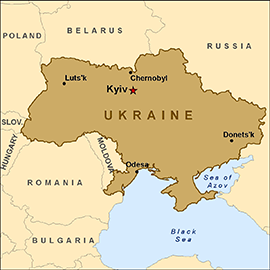Tag Archive for: fatherly advice

K.I.S.S. – Keep It Simple from the Start
Yesterday, I had the very entertaining opportunity to participate in morning drop-off at a local pre-school. In my capacity at the door, I observed several parenting styles at work – some I thought were quite efficient, and some I observed…

Happy Parents = Happy Kids
I wrote “Raising Children That Other People Like to be Around” because, after 36 years of marriage and 4 children, I believe that being good parents requires us to set a good example – and having a good relationship is the first, most…

The Blue / Pink Thing
The Blue Pink Thing is a simple term for the obvious (and not so obvious) differences between the genders. If you’re raising both boys and girls, I’m sure you are already aware of the Blue Pink Thing. As John Gray put it, “Men are…

Put Down The Controller (and Nobody Gets Hurt)
My name is Richard, and I am an addict.
When my children were young and asleep I used to sneak into our family room, power up our Nintendo, and quietly play the now-ancient video game with infectious music called “The Legend of Zelda” into…

Yes, I Locked My Kid in the Car
One day, when Aaron was about around two years old, JoAnn went out to runs some errands, leaving Aaron and me to wash my beloved navy blue two-door Fiat (because that's what guys do to bond). The car, being a European two-door coupe, had…

Are You a WIMPY Parent ?
Here are five quick tests:
Do you…let your children boss you around? (Do they say things like “Where’s my breakfast?”)
Do you…make excuses for your children? (“She would have said ‘Thank you.’ but she was too busy playing.”)
Are…

“The Circle Game”
As my children have gotten older and more self-sufficient, I’ve seen them become more “objective” about the hard-earned advice I offer. They no longer hear my voice as if it were thunder on the mountaintop. As my role in their lives…

Talking With Kids About Ukraine
I’ve been doing a lot of media lately, specifically about how to speak to our children about the situation in Ukraine.
It is my experience, theory, and observation that we all like to feel safe – especially children – so the idea of introducing…

What’s a Mommy or a Daddy Anyway?
or... EXCUSES PART TWO
In a previous blog I addressed the folly of parents too frequently accepting excuses from our children. I also mentioned the possibility of parents actually making up excuses on behalf of their kids – as in, they…

EXCUSES EXCUSES EXCUSES
I meant to write this post last week, but…
.......the dog ate it.
As a world-class procrastinator, I’ve become pretty friendly with the concept of a decent excuse. But as the son of hard-working and “absolute” parents, I’ve also…
